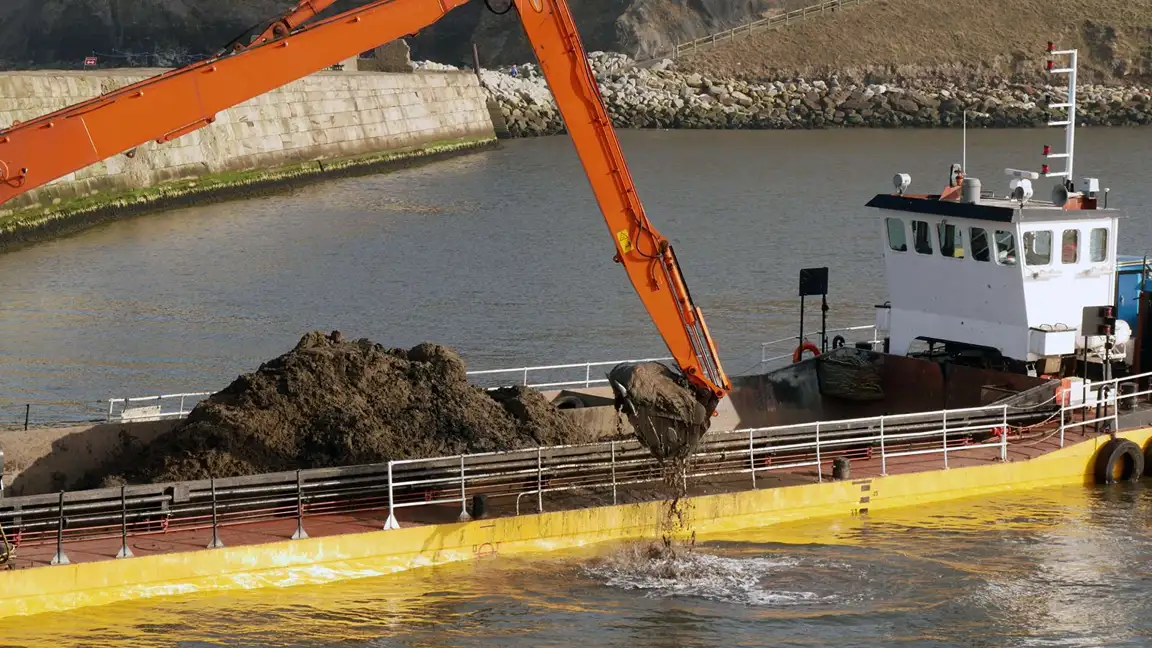- Introduction
- Introduction to Harbour Maintenance and Dredging Licences
- The Regulatory Landscape: Marine Management Organisation’s Role
- Challenges Leading to Dredging Licence Delays
- The Role of Expert Consultants in Navigating Licence Applications
- Comparing Whitby and Scarborough Harbour Dredging Licences
- Impact of Dredging Licence Delays on Harbour Operations and Local Communities
- Strategies to Streamline the Dredging Licence Approval Process
- Conclusion: Navigating the Complexities of Harbour Dredging Licences
Introduction
Maintaining harbour channels through dredging is vital for safe navigation, environmental health, and local economies. However, obtaining the necessary dredging licences can be a complex and time-consuming process. The recent dredging licence delay for Whitby Harbour highlights the challenges councils face in securing permits and complying with regulatory requirements.
Introduction to Harbour Maintenance and Dredging Licences
Dredging is essential for harbour maintenance, removing sediment that can block vessel passage and affect water quality. Before any dredging project can begin, authorities must secure a dredging licence. However, as seen in the Whitby Harbour dredging licence delay, even thorough applications can face unexpected hurdles, delaying critical maintenance work.
The Regulatory Landscape: Marine Management Organisation’s Role
The Marine Management Organisation (MMO) oversees dredging licences in the UK, ensuring projects meet environmental and safety standards. The MMO’s detailed review process is a major factor contributing to dredging licence delays, as applications must address numerous technical and environmental considerations before approval.
Challenges Leading to Dredging Licence Delays
Dredging licence delays often occur due to requests for additional technical information or environmental impact assessments. The Whitby Harbour dredging licence delay resulted from the MMO requiring more detailed data, which extended the timeline for approval. Such challenges reflect the complexity of balancing harbour maintenance needs with environmental safeguards.
The Role of Expert Consultants in Navigating Licence Applications
To address the MMO’s concerns and resolve the dredging licence delay, the Whitby council engaged expert consultants. These specialists provide detailed technical analyses and help answer complex questions, smoothing the path toward licence approval. Their expertise is crucial for overcoming hurdles that cause dredging licence delays.
Comparing Whitby and Scarborough Harbour Dredging Licences
While Whitby Harbour faces a dredging licence delay, Scarborough Harbour’s licence was granted last December, allowing dredging to proceed. The difference illustrates how varying site conditions, application completeness, and technical detail can impact the duration of dredging licence delays.
Impact of Dredging Licence Delays on Harbour Operations and Local Communities
Dredging licence delays affect harbour usability, especially during busy seasons. The ongoing delay in Whitby Harbour dredging has raised concerns among local officials and stakeholders about navigation safety and tourism impacts. These delays emphasize the importance of timely dredging to maintain safe waterways.
Strategies to Streamline the Dredging Licence Approval Process
To minimize dredging licence delays, councils and regulators can adopt strategies like early expert involvement, comprehensive applications, and improved communication with the MMO. Policy reforms and clearer guidance could further streamline approvals and reduce costly delays.
Conclusion: Navigating the Complexities of Harbour Dredging Licences
The Whitby Harbour dredging licence delay exemplifies the multifaceted challenges involved in securing dredging approvals. Effective collaboration between councils, expert consultants, and the MMO is essential to overcome technical and environmental hurdles. By improving processes, future dredging projects can proceed with fewer delays, ensuring harbours remain safe and operational.
